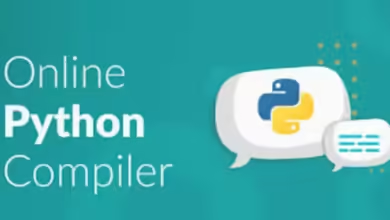The Future of Employment: How Artificial Intelligence is Redefining Roles 2024

Artificial intelligence (AI) has developed from a futuristic idea to a practical reality in the modern era. It’s here and quickly changing the way we live and work. However, precisely how is AI altering the nature of work? The future of work and how AI is changing jobs are discussed in this article.
Introduction: AI and the Changing Job Landscape
The use of AI is changing the way we operate. Artificial Intelligence is changing the way we work, from automating repetitive tasks to developing whole new job categories. But in the workplace, is AI a friend or a foe? Many of us are wondering this as we watch AI develop so quickly.
The Rise of AI in the Workplace
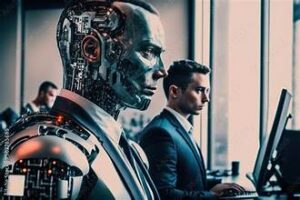
AI has already been incorporated into our workplaces. AI solutions are being used more and more to increase productivity and cut expenses. Examples of these include chatbots for customer service and predictive analytics. AI is comparable to the inexperienced intern who works nonstop, never sleeps, and picks things up quickly. AI, however, does not have lunch breaks or vacation days like an intern does.
Automation: Replacing Repetitive Tasks
Automation is one of the main effects of AI on employment. AI-powered devices and software are progressively taking over jobs that are monotonous, hazardous, or repetitive. AI-powered robots, for instance, can assemble products faster and more accurately than humans in the manufacturing sector. However, workers in traditional roles will have fewer jobs as a result of automation, which raises concerns about job displacement.
The Creation of New Job Roles
AI is creating new jobs as well as potentially replacing some. Consider professions that did not exist ten years ago, such as automation engineers, data scientists, and AI specialists. The AI revolution is doing the same thing to jobs that the industrial revolution did, while also creating new ones. The ability to adapt and the desire to pick up new skills are crucial.
Human-AI Collaboration: The New Normal
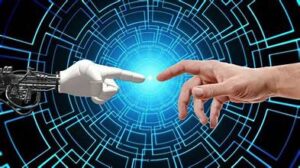
Many businesses are embracing AI as a collaborator rather than seeing it as a threat. While humans concentrate on creativity and decision-making, AI can handle data analysis. This symbiotic relationship that fosters mutual growth between artificial and human intelligence is turning into the new norm.
Reskilling and Upskilling: Preparing for the Future
Retraining and upskilling are now crucial since AI is altering the nature of work. For workers to remain relevant in a world driven by AI, they must acquire new skills. Organizations and governments are funding training initiatives to assist employees in assuming new responsibilities. Future workers will need to be more tech-savvy and flexible.
Industries Most Affected by AI
AI has a greater impact on some industries than on others. Customer service, manufacturing, healthcare, and finance are some of the industries that are undergoing major transformation. AI helps with disease diagnosis in the healthcare industry. Investments are managed by AI algorithms in finance. Leading the way in showcasing how AI can improve efficiency and productivity are these industries.
The Ethical Considerations
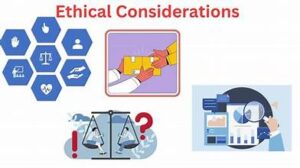
As artificial intelligence (AI) becomes more prevalent in our work environments, new ethical questions arise. How can we make sure AI is applied appropriately? Who pays the price when AI makes a mistake? These are moral conundrums that call for serious thought in addition to technical ones. The future of work depends on ensuring that AI helps everyone, not just a few.
Challenges and Opportunities
AI’s emergence presents both opportunities and challenges. One faces the difficulty of job displacement and the requirement for acquiring new skills. Conversely, artificial intelligence (AI) creates chances for economic expansion, productivity, and innovation. How we handle these obstacles and take advantage of the opportunities AI offers will determine the nature of work in the future.
The Global Perspective
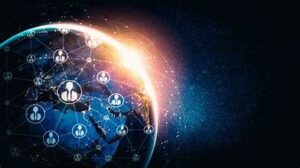
AI’s effect on employment is a worldwide phenomenon, not exclusive to any one nation or area. Different nations are implementing AI at different stages; some are at the forefront of innovation while others are just catching up. It is crucial to comprehend AI’s global effects in order to forecast future developments in the labor market.
Conclusion: Embracing the Future of Work
Without a doubt, AI is changing the nature of work. Although there are obstacles to overcome, there are also fantastic chances for development and creativity. We can guarantee that everyone has a promising future in the workforce by embracing AI and being ready for its effects. Moving forward, adaptability, ongoing education, and ethical considerations are crucial.
FAQs: AI and the Future of Work
1. Will AI completely replace human jobs?
No, while AI will automate certain tasks, it will also create new jobs that require human skills, such as creativity and emotional intelligence.
2.Which jobs are most vulnerable to the impact of AI?
Jobs that involve repetitive, routine tasks, such as data entry, assembly line work, and basic customer service, are most at risk of being automated by AI.
3. How can workers prepare for an AI-driven future?
Workers can prepare by reskilling and upskilling in areas like AI, data analysis, and other tech-related fields. Continuous learning will be essential.
4. Is AI only affecting certain industries?
No, AI is impacting almost every industry, but sectors like manufacturing, healthcare, finance, and customer service are experiencing the most significant changes.
5. What ethical concerns does AI raise in the workplace?
Ethical concerns include bias in AI algorithms, privacy issues, and accountability for AI decisions. These require careful management to ensure fair and responsible use of AI.



